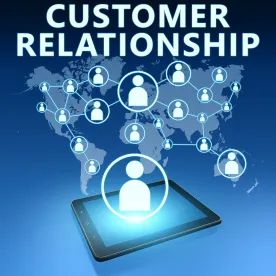Your law firm’s customer relationship management (CRM) is standard for managing leads, prospects, and client contact information to build strong professional relationships. You know that your firm needs a CRM for its basic functions, but many firms don’t realize the power their CRM truly has to support several business operations.
Continue reading to learn how to level up your law firm’s CRM and improve your processes at the same time.
What Is a CRM?
CRM is a technology that’s used to manage an organization’s relationships and interactions with customers and prospects. The goal of a CRM is to improve professional relationships to fuel business growth, which is accomplished through connections with customers and streamlined processes that increase profitability.
Key CRM Features and Benefits
If law firms want to make the most of a CRM system, they need to understand what tools CRMs offer. While the features and functionalities may vary, every CRM system offers specific features to track and store prospect and client information.
Some of the features most beneficial for law firms include:
Workflow Automation
Effective CRM systems can create and automate workflows in every department, allowing individual teams to engage with prospects and clients for marketing activities, business development, or other tasks without administrative burden.
Reporting and Dashboards
Effective CRMs can be used to access and analyze data with real-time dashboards and user-friendly reports. This solution streamlines the data collection and analysis to inform decision-making.
Integrations and Customizations
CRMs are valuable for marketing and allow them to create workflows and customizations that adhere to the law firm’s processes and systems. These solutions are designed to be intuitive, so the marketing department doesn’t need coding support or special skills to integrate or customize them.
How Law Firms Can Harness the Potential of CRM Solutions
Some CRMs can be integrated into a firm’s current solution, or better, built-in to a practice management software, so information can be easily accessed by all members of the team.
Train All Departments
One of the challenges for law firms with CRMs is that not all employees or departments are trained to use them effectively. CRMs hold value for every department, so every department and employee should learn to use them (including lawyers).
There are a lot of features, so the training needs to go beyond basic training and teach employees how to use all of them. If possible, law firms should consider professional training to ensure that every employee is developing the technological skills they need.
Create Goals for CRM Use
Goals should be part of CRM training. Without goals and realistic strategies to achieve them, it’s possible that employees will never get the true potential and capability from CRMs. Goals should include both short-term goals and long-term, organizational goals.
Ask for Feedback
Often, the decision-makers implementing technology solutions aren’t the ones using them. The employees “in the trenches,” so to speak, need to have a positive user experience in order to use and enjoy CRMs.
Law firms should ask employees for feedback on the CRM and learn what works, and what doesn’t, to see what can be improved. No matter what a CRM can accomplish, it’s useless if employees are hesitant to use it out of confusion or frustration.
Consider the Use of Data
One of the main benefits of CRM is the wealth of customer data it can store. Beyond the basic uses, such as storing client contact information and lead information, CRMs can be leveraged for future marketing campaigns, referral programs, and other possibilities. Law firms should consider all the possible uses for their client data and find creative ways to utilize it.
Take Advantage of Integrations and Customizations
CRM solutions are often a part of employees’ day-to-day tasks and routines. In a law firm with remote workforces or field employees, it’s vital that the CRM is accessible to anyone in the organization, on any device, and from any location with secure internet access.
A law firm’s CRM solution has integration capabilities, so it’s important for law firms to combine CRMs with any applicable technologies. CRMs can integrate with calendars, email accounts, marketing automation tools, and other technologies, reducing friction for employees and facilitating deeper and more authentic relationships with prospects and clients.
CRMs, like offer numerous customization options that ensure they serve the needs of individual clients and their marketing or business development. For example, tagging features can be customized to support lead generation with custom tags that track where clients come from, allowing for better and more targeted marketing efforts.
Consult with the Team
Adopting and embracing new technology isn’t easy for organizations, especially when they’re large and have a lot of employees. Some employees may embrace the solution faster than others, and departments and teams may need access to different features and customizations.
Law firms should conduct regular check-ins with employees to see how the solution is performing and address any ongoing questions or concerns. If these check-ins show that the solution isn’t delivering what is needed, it’s an opportunity to determine why and look for solutions.
Take Care of Data
Raw data needs to be cleaned before it can be used effectively. Data should be entered into the CRM regularly, but also cleaned regularly to ensure that it’s accurate, current, accessible, and relevant.
Ideally, law firms should have systems and standards for inputting data consistently. It can be included in the training or check-ins to ensure that every employee is on the same page. CRMs are only as beneficial as the quality of their data.
Leverage the Power of CRM
Law firms, like other businesses, often implement CRMs and fail to see positive ROI. CRMs are only a tool, and law firms need to learn how to use all available features and customize them to their needs to ensure they get all they can out of the solution. This requires active participation from employees firm-wide, no matter the department.




 />i
/>i
